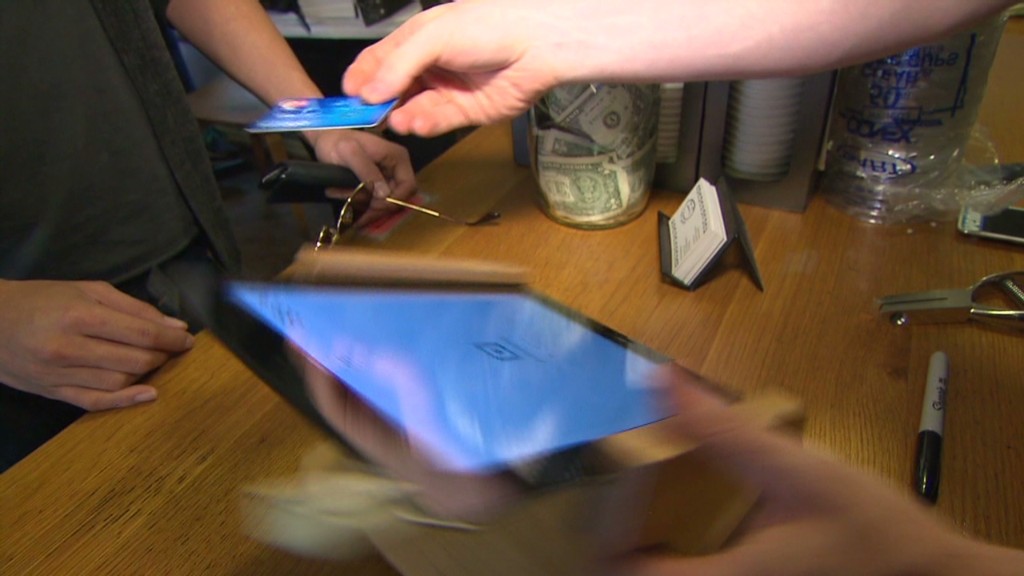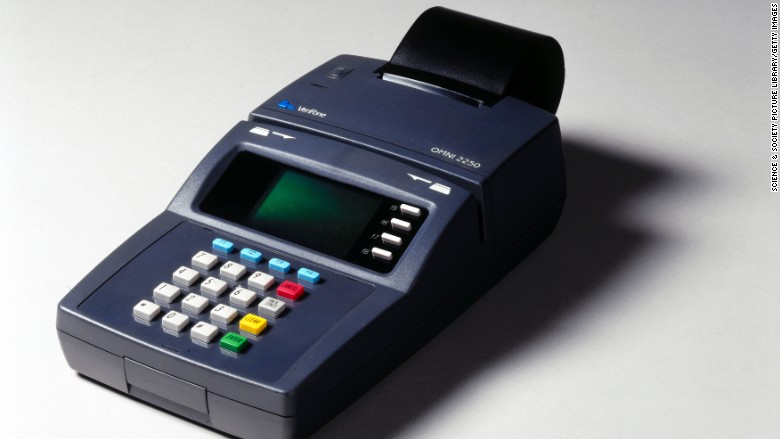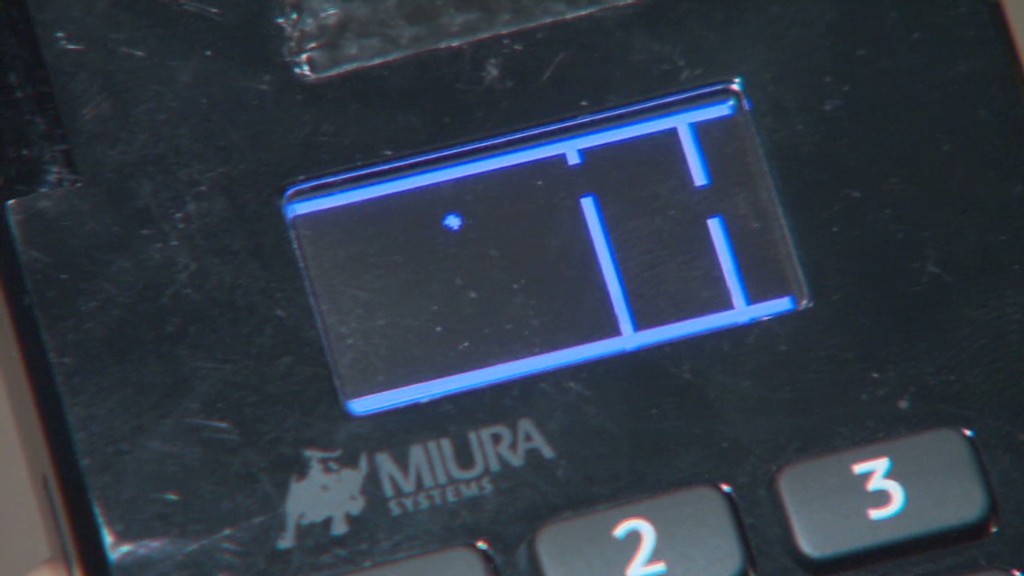This code hacks nearly every credit card machine in the country

Get prepared for a facepalm: 90% of credit history card audience presently use the identical password.
The passcode, established by default on credit card devices since 1990, is very easily identified with a rapid Google searach and has been uncovered for so extended you can find no sense in making an attempt to cover it. It really is both 166816 or Z66816, relying on the device.
With that, an attacker can achieve full management of a store’s credit score card audience, possibly allowing them to hack into the equipment and steal customers’ payment knowledge (think the Target (TGT) and House Depot (Hd) hacks all more than once more). No ponder large vendors retain shedding your credit rating card info to hackers. Protection is a joke.
This most up-to-date discovery will come from researchers at Trustwave, a cybersecurity firm.
Administrative accessibility can be employed to infect machines with malware that steals credit score card data, explained Trustwave government Charles Henderson. He thorough his findings at final week’s RSA cybersecurity convention in San Francisco at a presentation termed “That Level of Sale is a PoS.”
Just take this CNN quiz — obtain out what hackers know about you
The difficulty stems from a recreation of hot potato. Product makers offer devices to unique distributors. These distributors promote them to suppliers. But no one particular thinks it truly is their work to update the learn code, Henderson told CNNMoney.
“No 1 is changing the password when they established this up for the first time everyone thinks the safety of their place-of-sale is someone else’s responsibility,” Henderson claimed. “We are creating it very quick for criminals.”
Trustwave examined the credit card terminals at additional than 120 merchants nationwide. That consists of important apparel and electronics shops, as effectively as nearby retail chains. No certain shops were being named.
The wide the greater part of devices had been produced by Verifone (Shell out). But the exact challenge is existing for all major terminal makers, Trustwave reported.

A spokesman for Verifone claimed that a password alone isn’t more than enough to infect equipment with malware. The corporation explained, till now, it “has not witnessed any assaults on the protection of its terminals based mostly on default passwords.”
Just in scenario, although, Verifone said stores are “strongly advised to change the default password.” And presently, new Verifone products appear with a password that expires.
In any case, the fault lies with stores and their unique sellers. It truly is like house Wi-Fi. If you obtain a property Wi-Fi router, it is up to you to adjust the default passcode. Merchants should really be securing their possess devices. And device resellers ought to be encouraging them do it.
Trustwave, which will help defend stores from hackers, mentioned that preserving credit history card equipment harmless is lower on a store’s record of priorities.
“Companies expend much more funds picking out the shade of the place-of-sale than securing it,” Henderson explained.
This difficulty reinforces the conclusion designed in a current Verizon cybersecurity report: that retailers get hacked since they are lazy.
The default password point is a significant problem. Retail computer system networks get uncovered to computer system viruses all the time. Take into account just one circumstance Henderson investigated not too long ago. A terrible keystroke-logging spy software package finished up on the pc a keep uses to process credit card transactions. It turns out staff had rigged it to engage in a pirated version of Guitar Hero, and unintentionally downloaded the malware.
“It reveals you the amount of obtain that a ton of people have to the point-of-sale atmosphere,” he stated. “Frankly, it truly is not as locked down as it must be.”

CNNMoney (San Francisco) First published April 29, 2015: 9:07 AM ET







